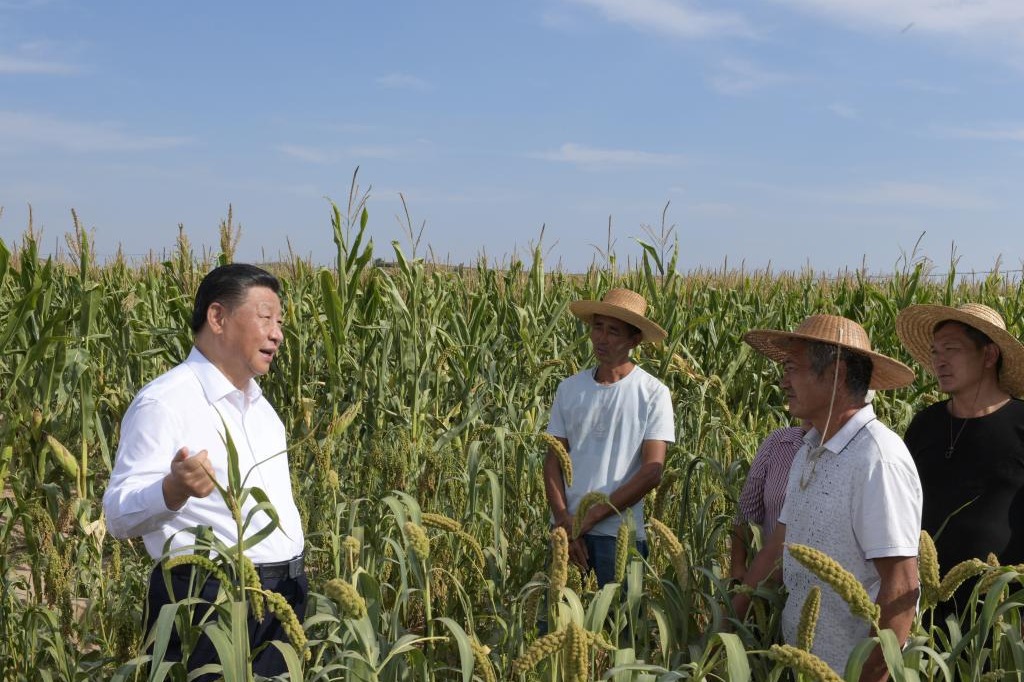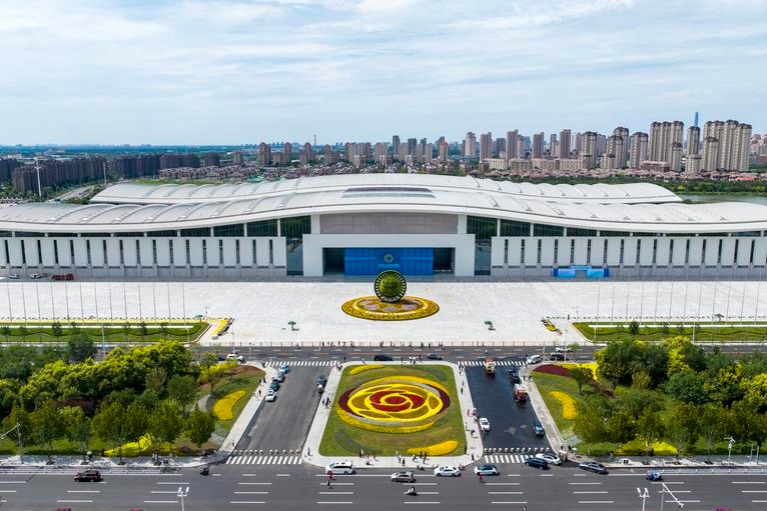Border peace serves shared interests of China, India


Both China and India are ancient civilizations whose interactions transcend even the formidable barrier of the Himalayas. Despite this historical connection, the border issue between China and India has persisted unresolved for over a century. Since India's independence and the founding of the People's Republic of China in the mid-20th century, bilateral relations have navigated through phases of honeymoon, confrontation, and ongoing enhancement and growth.
The border standoff since 2020 dealt a blow to the bilateral ties of the two biggest developing countries, which does not serve the fundamental interests of China and India and their peoples.
In reality, China has consistently emphasized the significance of resolving the border issue through peaceful and diplomatic channels, maintaining open lines of communication with India. This approach has facilitated the management of disputes and the containment of potential conflicts. The establishment of a working mechanism for consultation and coordination on border affairs between the two nations, along with various meetings and the implementation of a military exchange mechanism, has proven beneficial in this regard.
The meeting between President Xi Jinping and Indian Prime Minister Narendra Modi on the sidelines of the BRICS Summit held in Kazan, Russia, on Oct 23, the first one in five years, set the stage for narrowed differences, greater consensus-building, ease, cooperation, peace, and tranquility in the border areas.
The border issue remains a lingering challenge stemming from a bygone era of colonialism and hegemony. It can be easily exploited by various forces to strain the bilateral relations between the two largest developing countries.
India now seems to acknowledge the adverse effects of these actions and is demonstrating a readiness to engage with China in a more genuine and constructive manner. In recent years, New Delhi had intensified its scrutiny of Chinese investments, disrupted direct flights, and nearly imposed a blanket ban on visas for Chinese nationals. However, these measures backfired, leading to substantial economic setbacks for India.
In response, chip manufacturers and other related industries within India protested against these restrictions, emphasizing that such measures were detrimental to India's high-end manufacturing sector. They called on the Indian government to ease these restrictions to prevent further harm to the industry.
As one of the countries that initiated the Non-Aligned Movement, India should be well aware of the severe consequences of fully joining the Western camp. Thankfully, all successive Indian administrations have underscored that non-alignment remains a cornerstone of its foreign policy. India continues to prioritize fostering relationships with nations across the globe, thereby playing a crucial role in both regional and international affairs.
It is a significant fact that China has surpassed the United States to become India's largest trading partner, fostering increased collaboration in areas such as electronics manufacturing, pharmaceuticals, electric vehicles, investment, water monitoring, ecological protection, and low-carbon development.
Partly due to the previous confrontation with China, India's economy suffered a significant blow. Though in June Indian Prime Minister Narendra Modi declared victory for his alliance in India's general election, his party lost seats to a stronger than expected opposition.
Recent statements by India's External Affairs Minister, Subrahmanyam Jaishankar, suggest a shift in perspective. Jaishankar's remarks indicate that Chinese enterprises could actually contribute positively to India's economic growth and development.
In the future, realizing common national rejuvenation between the two most populous countries has gone beyond the scope of ordinary bilateral relations. Against this backdrop, China and India should enhance mutual trust.
Both countries should actively pursue avenues to bolster people-to-people exchanges, engage in dialogue, and foster mutual understanding. While striving for closer ties, India and China must address various challenges with wisdom and diplomacy. It is crucial for both nations to uphold their commitments; historically, China has demonstrated reliability in keeping its word, and it is crucial for India to reciprocate with the same level of integrity and commitment.
China and India have the potential to forge stronger cooperation agreements on climate change. As the two most populous countries, their collaboration is vital for the well-being of all humankind. By actively engaging in joint efforts to address climate change, China and India can set a positive example for the world and make significant contributions toward a more sustainable planet.
Certain Western political entities are attempting to exploit the border disputes between China and India to sow discord. However, India should remain steadfast in its practice of maintaining a balanced and multifaceted diplomatic approach.
The year of 2025 marks the 75th anniversary of establishing diplomatic ties between China and India. The longstanding history of peaceful interactions between the two nations underscores that peace is the cornerstone of China-India relations and aligns with the prevailing sentiment of global communities and regions. As ancient civilizations and emerging economies in the East, it is in the best interest of both countries to steer back toward cooperation and mutual understanding. This trajectory reflects the shared aspiration of peace-loving individuals worldwide.
The author is a researcher at the Institute of Borderland Studies, the Chinese Academy of Social Sciences. The views don't necessarily reflect those of China Daily.
If you have a specific expertise, or would like to share your thought about our stories, then send us your writings at opinion@chinadaily.com.cn, and comment@chinadaily.com.cn.

































